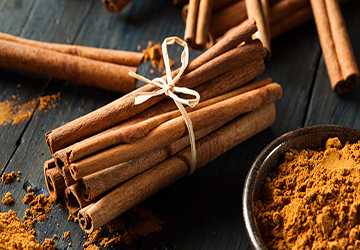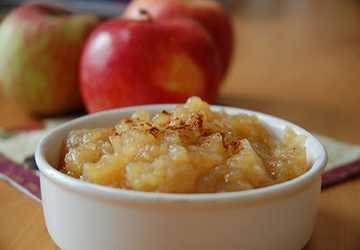14 Best Foods for Stomach Flu
Author: Odin Bernard
Dealing with stomach flu can be scary. Even mild cases can cause severe vomiting and diarrhea. Stomach flu is so common that when you get it, there's not much you can do other than let it run its course and treat your symptoms. Fortunately, most stomach flu doesn't last more than a few days and is unlikely to cause any severe complications. One of the most problematic issues associated with these diseases is dehydration.
Once the virus leaves your system, you may feel sick for a few days. Eating or controlling food may be difficult, and you may feel exhausted. There are foods you can eat during or after stomach flu to help you fight off the flu faster and prevent future stomach problems. Here are 14 of them. You can try one or all of them to see which works best for you.

1. Cinnamon
Cinnamon is a great food after the stomach flu, as it contains antiviral properties that will help fight any lingering virus and allow you to recover fully. Cinnamon is very potent not only to help fight pre-existing conditions or help you recover faster, but it can also help prevent disease.
Regular consumption of cinnamon can boost the immune system and prevent digestive disorders and infections. It can also help prevent pain associated with stomach flu. You can add cinnamon to your favorite recipes or beverages like coffee, hot tea, milk, and honey. It can be taken several times a day without hesitation if necessary. It can also help prevent other diseases and infections and help keep you healthy.
2. Peppermint
Peppermint can soothe an upset stomach and help relieve the pain and discomfort associated with stomach flu. Peppermint has antispasmodic properties, which means it can prevent stomach cramps and relieve pain. If you vomit frequently due to stomach flu, you may experience persistent stomach cramps, which can be painful. Peppermint can also help ease bloating and heal the digestive tract by soothing it.
Mint can be added to tea, coffee, milk, or recipes. You can find peppermint extract at many stores. If you don't like eating peppermint extract or adding it to your favorite beverage, you can buy mints instead. It usually contains enough peppermint extract to relieve symptoms. Consuming peppermint regularly is safe, and you can continue to drink it until your symptoms subside and you feel better.
3. Chamomile
Chamomile can be taken after a stomachache to help prevent severe pain. It has soothing properties and wraps around the stomach and digestive tract to help heal faster. When you have stomach flu, the tissues in your digestive tract become inflamed and swell. Consuming chamomile can help reduce inflammation and may prevent stomach pains. Chamomile also has antispasmodic properties that prevent stomach cramps.
It also prevents cramping and bloating. Chamomile tea is a popular way to ingest chamomile after a stomach flu. You can buy chamomile tea or make your own. You can also use this herb in your favorite recipes. It is suitable for baking and can be purchased in a dry form online or at many health food stores. The tea can be taken daily or until symptoms subside. Many people drink it daily for other health reasons.
4. Ginger
Ginger has many effects on the body, especially the digestive tract. It is very effective in relieving nausea and is used by many people to treat motion sickness. Ginger can also soothe an upset stomach caused by stomach flu. Stomach flu can seriously damage the stomach, and it may take a while for the body to heal on its own. Nausea may persist even after more severe symptoms subside.
This is because the stomach is still in poor condition and may not be ready to digest food normally. Ginger relieves nausea and has anti-inflammatory and antiviral properties that can help fight other stomach problems and help the stomach heal faster. You can eat ginger raw or add it to your favorite recipes or beverages, such as coffee or tea. You can even find candied ginger.

5. Ice cubes
Even if you can't control your food or fluid intake, you should still try to stay hydrated. One way is to consume ice cubes. Numerous studies have found that eating ice cream not only helps prevent dehydration but can also help reduce pain associated with stomach viruses and ease the sore throat that many people experience.
If you have bad taste in your mouth from vomiting, ice cubes can help remove the taste. Vomiting and choking can also cause a sore and swollen throat. Ice can also help numb the gag reflex so you don't feel the need to gag or have a strange feeling in your throat. Ice can help reduce swelling and relieve pain. You can eat or sip on ice cream all you want or enjoy it cold.
6. Yogurt
Unlike yogurt, unlike yogurt, consuming dairy products while having stomach flu or shortly after getting sick is only sometimes a wise decision. Yogurt contains active cultures that can attach to bacteria and viruses that may still be in the stomach and help flush them out of the body. These cultures feed on the bacteria and prevent them from spreading to other parts of the digestive tract, where they could cause problems or get out of control and cause secondary infections.
You can eat yogurt in many different ways. It's best to go for plain yogurt, but if you like flavor, that's fine too. You can freeze yogurt and eat it like ice cream or use it in soups and dips to mix and match different tastes. Eat yogurt as much as you can, even every day, to prevent stomach problems in the future.
7. Toast, white rice, and biscuits
All of these are excellent foods to eat when fighting the stomach flu. They are considered mild food that won't irritate sensitive stomachs. These simple foods are also easy to digest, so your stomach won't have to work hard to digest them. You may have one or all of these foods in your pantry. If you eat any food after the stomach flu, try to eat it in small amounts not to overburden your body or fill your stomach.
Most people don't eat when they have a stomach virus infection and will be extremely hungry after recovery. These foods are all filling. They satisfy your hunger and make you feel like eating real food. You can also have this food with other foods if you prefer. It's best to avoid greasy or spicy foods, but these will calm your stomach so that you can eat different foods.
8. Bananas
Bananas can provide relief from many stomach problems associated with stomach flu. Not only are they rich in vitamins that help reduce the risk of stomach virus reinfection, but they also help prevent diarrhea. Bananas also soothe the stomach and help reduce any swelling or inflammation that may occur. Grab some bananas if you're hungry but still nauseous and can't control other foods.
If raw fruit isn't your thing, add it to ice cream or cereal or use it in baking or cooking. Frozen bananas taste great, dipped in chocolate, peanut butter, or yogurt. You can eat bananas as often as you like or your stomach allows. Remember not to overeat too early, leading to stomach pain or more vomiting.
9. Rice washing water
Rice water may not sound very delicious, but it can be beneficial in treating stomach flu. Rice water is used to treat many ailments but is very effective in treating stomach problems. It contains electrolytes needed after many illnesses that cause vomiting. Rice water can also help prevent diarrhea.
You can make your rice water quickly and easily. Just boil a small amount of rice in a small amount of water and wait for the water to cool. Store it in the refrigerator if you prefer it chilled, or drink it warm. Many people like the taste of rice water and can drink it directly. Some people like to add other spices or use them to make tea. You can try different flavors to see which you like best.

10. Blueberries
Blueberries contain vitamins and nutrients that can help your body recover from illness. When consumed, these benefits immediately affect the stomach and digestive tract. Blueberries are fiber-rich, which your body needs to have a bowel movement.
Even if symptoms of gastroenteritis persist, the bacteria or virus that caused them may remain in the stomach and intestines. A bowel movement can help flush out these toxins from the body and allow the stomach to heal faster. Blueberries can also help relieve stomach pains and cramps, making you less likely to experience pain or nausea.
Blueberries can be eaten as they are or added to smoothies, tea, baked goods, salads, and even ice cream. They are incredibly versatile and can be easily added to almost any recipe. You can eat blueberries every day or until you notice an improvement in your symptoms.
11. Applesauce
Apples are never a good choice after stomach flu, but applesauce is, ironically, a better choice. Applesauce is rich in pectin, which is a soluble fiber. Pectin is very good for the stomach and digestive system. It helps prevent bacteria and viruses from attaching to the stomach lining, preventing them from getting out of control and causing problems.
It also aids digestion, makes bowel movements more accessible, and helps remove toxins through feces. You can make your applesauce or buy it at the store. You can also add cinnamon to applesauce for added flavor and other benefits. Applesauce can be eaten daily and can help prevent diarrhea and treat constipation. It also prevents stomach cramps and relieves pain and severe cramps.
12. Butternut Squash
Butternut squash is packed with vitamins and can be eaten in various ways. It's high in fiber, which makes it a great food to eat after a stomach flu. Butternut squash is also high in potassium and vitamin A. These substances are usually lost if you have frequent vomiting or diarrhea. Other vitamins and nutrients it can replace include vitamin C, thiamine, manganese, magnesium, folic acid, niacin, thiamine, and pantothenic acid.
You can eat butternut squash in many different ways. You can roast and eat it with vegetable oil, salt, and pepper or use it in soup. Some people like to add it to salads or even fry it. It is highly versatile and easy to use. Butternut squash can be eaten daily, and while ideal for helping with stomach flu recovery, it can also help prevent other illnesses and infections.
13. Chicken soup
You may remember drinking chicken soup when you were sick as a child. Not only is it something mothers prepare for their children, but it has a lot of nutritional value and is perfect for a post-stomach flu diet. It helps your body fight disease and strengthens your immune system, reducing infection risk.
The chicken stock in the soup contains salt, which your body needs, but if you vomit or have diarrhea, the salt is lost. Even if you're still determining if you'll be able to eat a large amount of food, it's a great way to satisfy your hunger. Broth helps to tone your stomach, and pasta and chicken fill you up and help you regain the strength you lost during your illness. Chicken soup, which can be eaten with biscuits, can also help improve health.
14. Lemon
Lemon has antidiarrheal and antiemetic effects. It is acidic, prevents nausea, and helps eliminate bad breath in the mouth when you are sick and frequently vomit. Lemon is a citrus fruit, so it also boosts your immune system, making you less likely to get an infection or virus in the future, and helps you fight your current stomach flu faster.
Lemons are so versatile that they can be easily added to your diet. You can add it to water and even make lemonade. You can squeeze it over meat or salads, add it to ice cream or smoothies, or add it to other drinks and juices. You can even eat it straight if you don't mind the sour taste. You can also add sugar to your candies. You can safely consume lemons daily, even if you haven't yet contracted a stomach virus.





